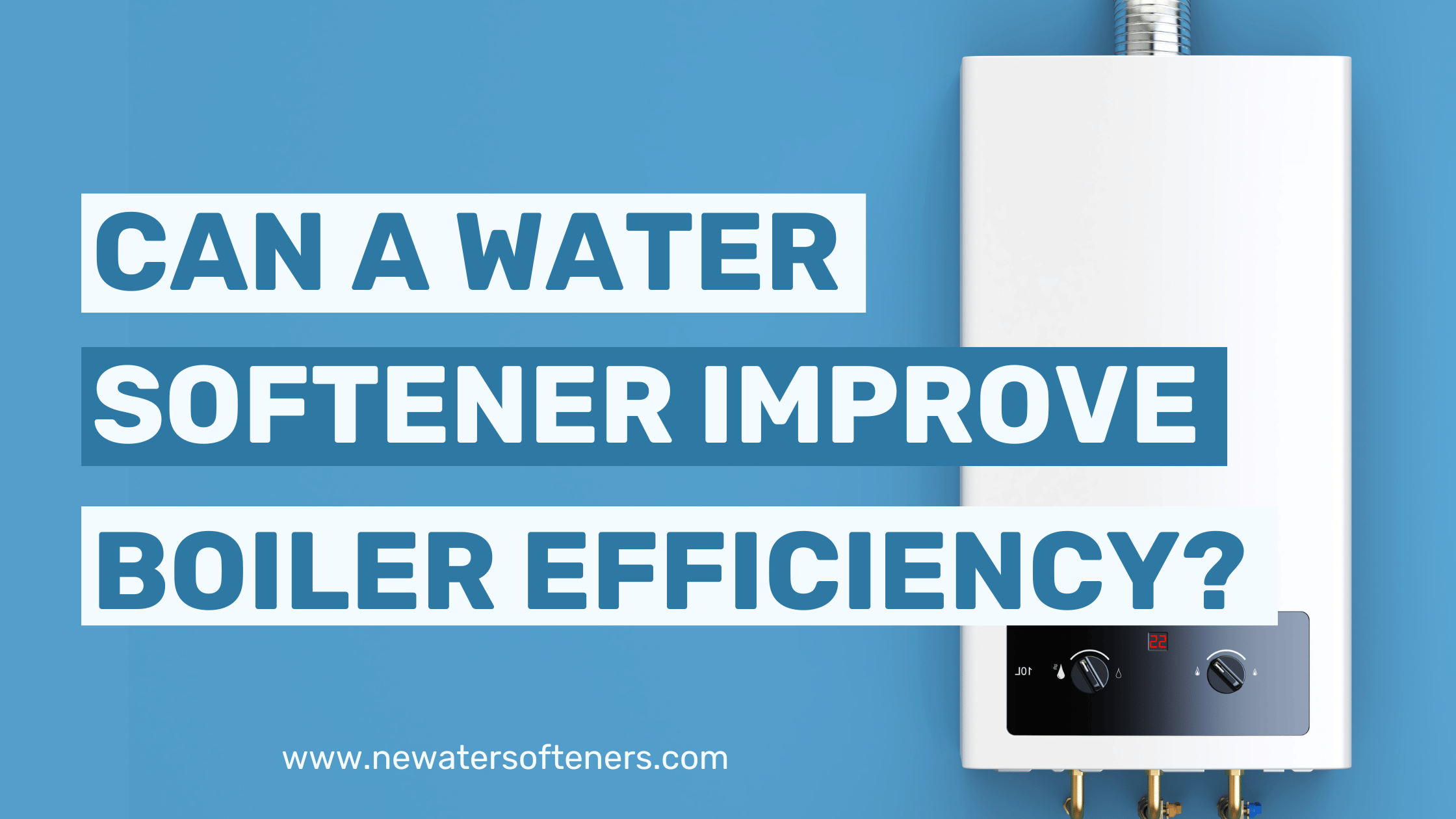How does a water softener improve the efficiency and lifespan of a boiler?

Hard water and limescale can permanently damage your boiler, pipes and heating system, For that reason, if you live in a hard water area, a water softener is often recommended. A water softener can not only protect your boiler, but it can significantly improve the efficiency and lifespan of a boiler by removing limescale and addressing other issues caused by hard water.
This includes:
- preventing limescale build up,
- enhancing boiler efficiency,
- extending the boiler life span,
- lowering maintenance costs
- and improving performance.
The Benefits of a Water Softener for Your Boiler
1. Preventing Limescale Build up
- A water softener removes calcium and magnesium ions, preventing limescale formation.
- This helps maintain efficient heat transfer and consistent water flow within the boiler, improving overall performance and energy efficiency.
Limescale Formation – Why does this affect your boiler?
- Hard water contains high levels of calcium and magnesium, which can precipitate out and form limescale when heated. Limescale can build up on the heat exchanger and other internal components of a combi boiler.
- Limescale acts as an insulating layer, reducing heat transfer efficiency. This means the boiler has to work harder and use more energy to heat water.
- It can lead to overheating and potentially damage the heat exchanger.
- Limescale can also restrict water flow within the boiler, causing it to work less efficiently and increasing wear on components.
2. Enhancing Boiler Efficiency
Energy Consumption & Heating Efficiency:
- Soft water allows for more consistent and reliable heating, improving the efficiency of both hot water and heating systems.
- With no limescale, the boiler operates more efficiently, reducing energy consumption.
- Efficient heat transfer means the boiler reaches the desired temperature more quickly and with less effort.
3. Extending Boiler Lifespan
Soft Water Reduces Corrosion and Allows For Boiler Component Protection :
- Hard water can lead to increased corrosion of metal components due to the formation of scale and subsequent chemical reactions.
- By preventing scale build up, a water softener protects the boiler’s components, such as the heat exchanger, valves, and pipes, from damage.
- This reduces the frequency of breakdowns and the need for repairs.
- Hard water can lead to increased corrosion of metal components due to the formation of scale and subsequent chemical reactions.
- Soft water can keep the boiler in good working condition for a longer period.
4. Lower Maintenance Costs
Fewer Repairs & Longer Service Intervals:
- By removing existing limescale and preventing future build up, A water softener results in fewer instances of component failures or blockages, reducing the need for costly repairs.
- With a water softener in place, the boiler can go longer between major services because it’s not as affected by scale-related problems. Regular maintenance and servicing are simplified without the need to address limescale-related issues.
5. Improving Overall System Performance
Better Hot Water Supply & Enhanced Heating:
- Soft water ensures the boiler can operate at its optimal efficiency without the hindrance of limescale – meaning a more consistent hot water supply.
- Radiators and underfloor heating systems connected to your boiler also benefit from improved efficiency and reduced limescale, ensuring more effective heating throughout the home.
- This also results in better performance of household appliances that rely on hot water.
Conclusion
By addressing the level of hard minerals in your water and removing limescale, a water softener helps maintain the efficiency, performance, and longevity of your boiler. This has a range of benefits which allow for a reliable supply of hot water and heating and a reduction of energy consumption and maintenance costs. This can provide long-term savings and protection from costly damages.
